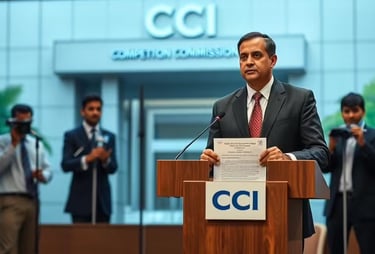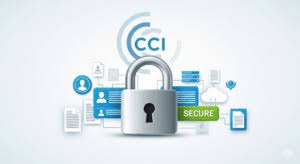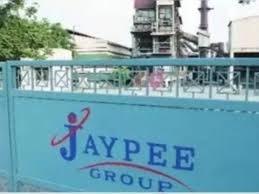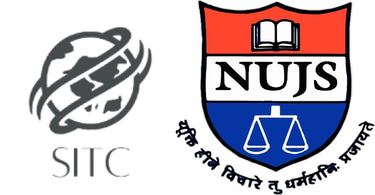Quick Updates — August 2025
QUICK UPDATESAUGUST2025
Bhumika - BO'30
10/1/20255 min read
Aug 5, 2025 (India): The CCI approved Dalmia Cement (Bharat) Ltd.'s 100% acquisition of Jaiprakash Associates Ltd under JAL’s insolvency process.
On 5 August 2025, the Competition Commission of India (CCI) cleared Dalmia Cement (Bharat) Ltd.’s acquisition of 100% of Jaiprakash Associates Ltd. (JAL) through JAL’s insolvency process. Dalmia, a top Indian cement producer, attempted to acquire JAL, the debt-ridden flagship of the Jaypee Group, which had entered the Corporate Insolvency Resolution Process (CIRP) under the Insolvency and Bankruptcy Code. As the deal crossed thresholds under the Competition Act, 2002, it required merger control clearance.
The CCI examined whether the deal would lead to an appreciable adverse effect on competition (AAEC). Given the cement’s high transport costs, competition is examined regionally, not nationally. Though Dalmia is a major player, the overlaps with JAL’s assets were limited. Crucially, JAL qualified as a “failing firm” that is without acquisition, its exit would reduce supply, harm employment, and waste capacity. Since this transaction resulted from competitive bidding under CIRP, concentration concerns were further reduced.
By ratifying the deal, CCI signaled a realistic balance between competition law and insolvency objectives. The clearance preserves productive assets, supports jobs, and maintains supply while ensuring long-term monitoring of Anti-competitive risks in cement markets.
Aug 11, 2025 (India): India’s Standing Committee on Finance reported that the government has “decided not to move ahead with ex-ante provisions for now” in the draft Digital Competition Bill.
On 11 August 2025, India’s Parliamentary Standing Committee on Finance placed on record that the government has decided not to move ahead with ex-ante provisions for now in the proposed Digital Competition Bill (DCB). The Committee presented its 25th Report on the developing role of the Competition Commission of India (CCI) in the digital economy, suggesting caution in moving too fast on preventive regulation.
The report explains that India’s current competition framework is ex-post, it penalizes anti-competitive conduct after it happens. But digital markets, with network effects, data advantages, and fast concentration, demand more forward-looking rules.The proposed DCB included ex-ante obligations for Systemically Significant Digital Enterprises (SSDEs).
Yet, the Committee has urged improving crucial components: thresholds for designation, rebuttal mechanisms, and context-specific rules rather than blanket bans. Because of these gaps and risk to India’s startups / MSMEs, the ex-ante part has been put on hold until further market studies and stakeholder alignment.
This development reflects a shift toward evidence-based regulation rather than sudden regulatory imposition, preserving the balance between innovation and competition oversight in India’s fast-evolving digital economy.
Aug 12, 2025 (USA): The U.S. Federal Trade Commission closed its probe of the “Clean Truck Partnership” between four heavy-truck makers and California’s air regulator.
On August 12, 2025, the U.S. Federal Trade Commission (FTC) concluded its investigation into the Clean Truck Partnership, a 2023 agreement between four major truck manufacturers Daimler Truck, International Motors, PACCAR, and Volvo Group and the California Air Resources Board (CARB). The partnership aimed to align truck emissions standards with California's stringent environmental regulations, including mandates for zero-emission truck sales and tighter diesel engine standards.
The FTC raised antitrust concerns, noting that the agreement could potentially restrict competition by imposing uniform emission standards across the industry, irrespective of federal regulations. Precisely, the FTC identified issues such as the lack of mechanisms to prevent enforcement against competitors and the lack of political responsibility within the agreement. In response, the manufacturers and their trade association, the Truck & Engine Manufacturers Association (TEMA), provided written commitments to the FTC. These commitments included denying the legal enforceability of the Clean Truck Partnership and pledging to act independently in future regulatory engagements. Consequently, the FTC determined that these assurances addressed its concerns and closed the investigation.
This resolution underscores the FTC's vigilance in scrutinizing industry collaborations, even those with environmental objectives, to ensure they do not undermine market competition.
Aug 12, 2025 (EU): The European Commission launched its first review of the new Foreign Subsidies Regulation (FSR).
On August 12, 2025, the European Commission commenced its inaugural review of the Foreign Subsidies Regulation (FSR), marking a crucial milestone in the EU's efforts to address market distortions arising from non-EU state subsidies. The FSR, effective since July 2023, authorizes the Commission to examine financial contributions from non-EU governments that may distort the internal market, especially regarding mergers, acquisitions, and public procurement processes. The review aims to assess the practical application of the FSR over its initial two years, focusing on areas such as notification thresholds, procedural burdens, and the clarity of financial contribution reporting requirements. The Commission seeks stakeholder feedback through a public consultation, open until November 18, 2025, to inform possible modifications to the regulation.
Key aspects under consideration include the proportionality of the FSR's requirements, the impact on investment into the EU, and the interface of FSR notifications with broader merger control and foreign direct investment clearance procedures. The Commission is also evaluating the effectiveness of the balancing test seeing whether positive effects of a foreign subsidy counterbalance its distortive impact on the internal market.
The findings from this review will culminate in a report to be presented to the European Parliament and the Council by July 2026, potentially leading to reforms aimed at enhancing regulatory efficiency and competitiveness within the EU.
Aug 27, 2025 (India): The CCI approved Adani Group entities (Adani Enterprises Ltd and Adani Infrastructure & Developers) to acquire up to 100% of Jaiprakash Associates Ltd.
On August 27, 2025, the Competition Commission of India (CCI) approved a major deal involving the Adani Group, allowing Adani Enterprises Ltd. (AEL) and Adani Infrastructure & Developers Pvt. Ltd. (AIDPL) to acquire up to 100% stake in Jaiprakash Associates Ltd. (JAL). This move comes under JAL’s ongoing Corporate Insolvency Resolution Process (CIRP), supervised by the National Company Law Tribunal (NCLT), Allahabad Bench.
JAL, once a very diversified infrastructure giant, has faced major financial distress due to rising debts, triggering insolvency proceedings. The group’s business interests extend across construction, cement, real estate, hospitality, power, and fertilizers, all key to India’s economic landscape. Adani’s bid positions it as a frontrunner to absorb these assets, complementing its expanding infrastructure and construction footprint.
The Committee of Creditors (CoC) is reviewing various resolution plans, but the CCI’s clearance removes a key regulatory hurdle, signaling that the acquisition does not harm market competition. For Adani, this is not just a distressed-asset buyout but also a strategic leap to assert its dominance in sectors ranging from cement to infrastructure, where it increasingly rivals older conglomerates.
This deal reflects how insolvency-driven mergers are transforming India’s corporate landscape, with competition law acting as the protection ensuring fair markets.





